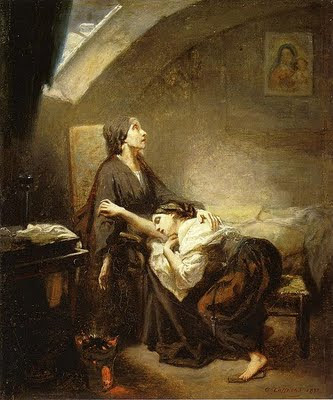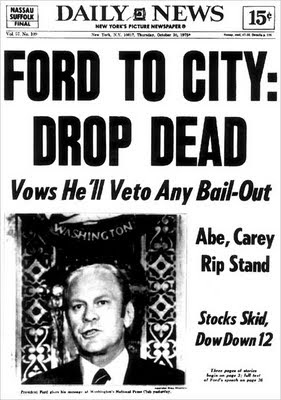
Dick and I were in Providence for the weekend. On Saturday night, after eating perhaps the best salad I've ever had*, I headed back to the hotel room to relax. I'd strolled around the small city for over six hours in the pouring rain and just wanted to knit.
I also wanted to watch cable TV, since we only get three stations here at home. I was looking forward to something on the food or travel channel, but no, the upscale hotel may have had a robe (but not one for each of us), but it only had the basic cable stations. I could have watched porn for who-knows-how-much, but frankly, knitting and porn just don't go together.
Nonetheless, I still had an urge to watch television, and so I surfed for a bit until I stumbled upon a show that was both truly revolting and highly thought provoking - "Lockup." This show is supposedly a "documentary" on MSNBC (see the webpage). Yes, it does document life in America's roughest prisons, but its style is more like "Cops" than anything of substance. Apparently, Americans get a kick out of watching "extractions", the often violent removal of an uncooperative inmate from their cell.
The show was interesting to be sure. A visit to Alaska's maximum security prison was of particular note. The level of prisoner violence there is markedly less than average. After watching three episodes of this show back-to-back, I could see why Spring Creek was different. A good deal of thought was put into more than punishment at this penitentiary. Inmates under 23 are separated from the general population and they can attend high school full time. The guards seem almost laid back; they don't see the inmates as "animals", nor do they treat them that way, and so, of course, violence is lessened.
Why is it that the obvious is overlooked? How can anyone think that it's sensible to put violent and/or mentally ill people in small cells and hold them there without anything to do for 23 hours a day? Unfortunately, our society cares much more for revenge and punishment than rehabilitation. Rehabilitation, to many people, seems like a reward. Many years back, a study showed that education was the single most useful tool to prevent recidivism. Of course it is. Otherwise, incarceration is only a breeding ground for resentment, rage, making new criminal contacts and learning new criminal skills. But no, more education for inmates didn't get a lot of people excited. The only excited people were the ones who yelled loudly about the need to punish people for their crimes. One point I agreed with - that there could be incentive in going to jail for the poor. But, for me, this brought up a few good points that my bleeding liberal heart pounced on. In jail, one gets "three hots and a cot", health care, and possibly some education. Why shouldn't all of these things be rights for all citizens?
Well, with our insane incarceration rate going up all the time, maybe it will be. As of year-end 2007, a record 7.2 million people were behind bars, on probation, or on parole, with 2.3 million of those actually incarcerated. Is this our fallback health care plan? Ah, America. . .the country of incredibly mixed-up priorities.
So, this is what I'm thinking about right now. It's better than going back to sleep, which I've been fighting with wanting to do since I woke up. My depression is still going strong, but without much emotion. It's certainly odd. I have no real desire to do anything. I have an interesting spinning project on my mind and when I was in Providence I was planning it while walking in the rain. Yet, the spinning wheel sits idle. I suppose that being a semi-passive observer or reader is about my speed, and thank goodness that it's semi-passive. I watch, read, analyze, and (sometimes) write. When visiting Rhode Island School of Design, I scribbled some notes for an entry about drawing vs. photography, but I can't find them. So, in spite of wanting to pull the covers over my head and sleep, my mind is pretty lively. Maybe, just
maybe, I'm not depressed. Maybe I just need sleep. It's certainly a possibility.
*What an all-over-the-map post, to say the least. Here's what I ate: House cured duck breast, served over fresh arugula with Bosc pears, steamed red and gold beets, and tossed in a honey horseradish-vinaigrette, garnished with pecorino cheese and toasted pignoli nuts. It made me want to go out and find an inspiring cookbook.
Photo note: In contrast, here's some prison food. I'm sorry I'm subjecting you to it, whatever it is. I can see how this could set off some people, though if one is homeless, it might look like manna from heaven. How lucky I am that I was able to eat at Providence's Parkside Rotisserie.








